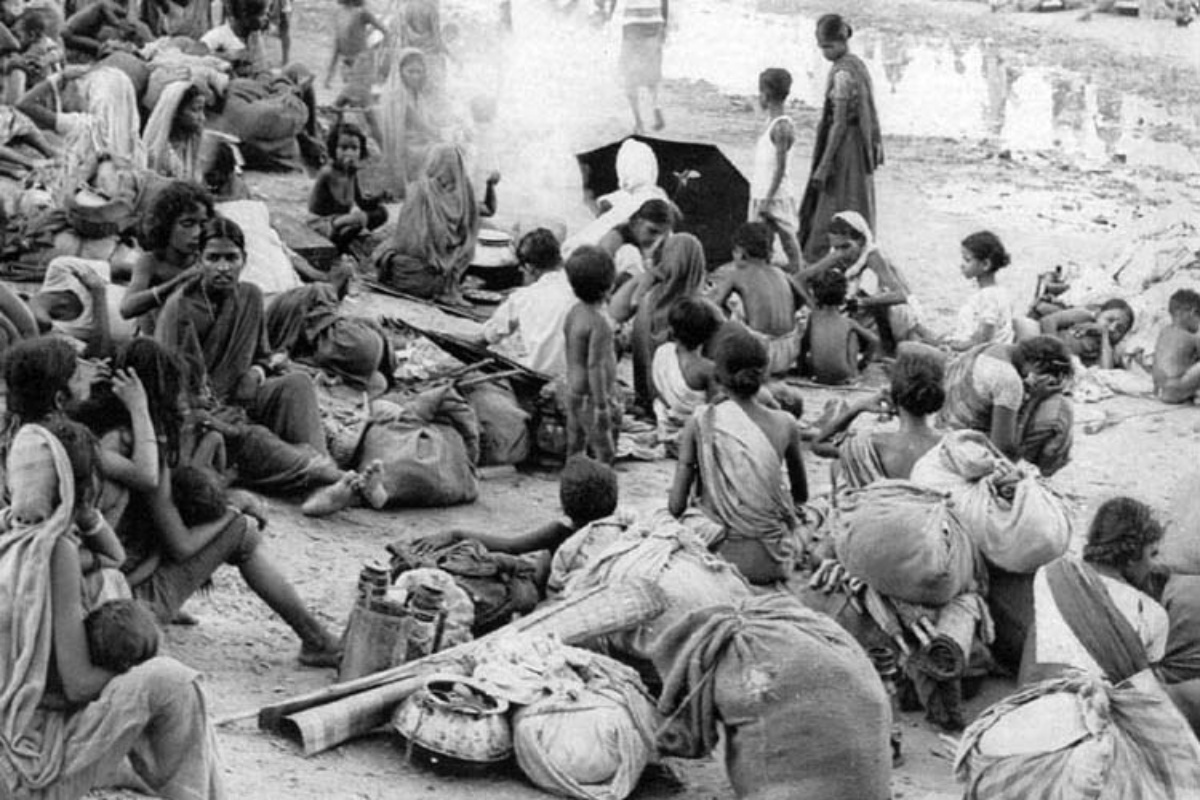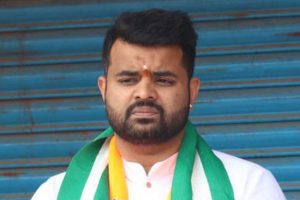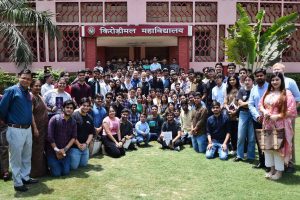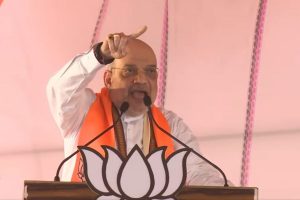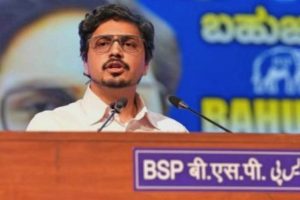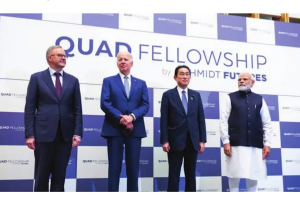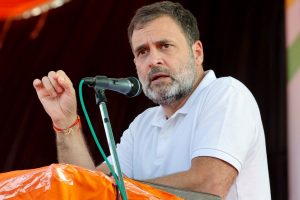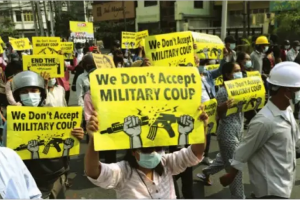The Indian Prime Minister, Mrs Indira Gandhi, sent a message to the White House on 13 May 1971, explaining the problems that India was facing because of the crisis in East Pakistan. The Nixon-Kissinger policy did not change even after this clear message.
They still wanted restraint from both Islamabad and New Delhi. The State Department had a proper understanding of the volatile situation and warned that either side might launch a war.
The situation would aggravate if China joined the war in support of Pakistan and Soviet Union for India. Lakshmi Jha, India’s Ambassador to the USA, apprised Kissinger about the ‘explosive’ nature of the situation and insisted on return of the refugees.
Advertisement
Surprisingly, Kissinger retorted that war was not justified just for refugees and insisted on restraint. Meanwhile, the internal situation in East Pakistan was changing quickly. The Mukti Bahini using guerilla tactics was able to consolidate in the rural areas as the Pakistani army was mostly confined to the cities. A secret radio station was also broadcasting news of such successes. A parallel between the East Pakistani situation with Vietnam became more popular.
The New York Times compared the Ganga River delta with the Mekong River delta. As 80 to 90 percent refugees were Hindus, it was clear that Hindus were the main targets of the Pakistani army operation. The CIA report warned that the “refugee problem is the principal threat to peace in the subcontinent.” The possibility of famine also became imminent. Increasingly, any compromise between West Pakistan with the eastern wing looked more unlikely making the situation extremely unstable.
India’s Foreign Minister Swaran Singh portrayed a gloomy picture and stated, “We in India have been at the receiving end of the results of the reign of terror and killings that has gone on in East Bengal since March 25th”. In such a serious and intolerable situation India “cannot sit idly by as the edifice of our political stability and economic wellbeing is threatened.”
Within this situation of mounting crisis, Mrs Gandhi made an official trip to Washington in November 1971 during which she had a private meeting with President Nixon to emphasize that a war would be disastrous for South Asia. Mrs Gandhi expressed her concern about the continued US military assistance to Islamabad and the influx of a vast number of refugees that had created a serious problem for India. But in private conversations, both Nixon and Kissinger were abusive of her with their misogynist remarks. Kissinger even went to the extent of abusing all Indians.
On 3 December 1971, Pakistan launched an air attack on India’s northern border. Even after the attack, the White House was supportive of Pakistan. Kissinger’s perception stemmed from the fact that he saw in it Indian-Soviet collusion. He warned that “if the Soviets get away with this in the subcontinent, we have seen the dress rehearsal for a Middle Eastern war.” A CIA report supported this position as it saw that it was a clever Soviet move to outwit the Chinese to enhance influence in the Third World.
It was an attempt to build on India with 550 million people as a countervailing power to the Chinese with 750 million. The speculation of the impending visit of Nixon to Beijing had enhanced Soviet anxieties. A war with Pakistan for India would block any possibility of rapprochement between India and China. The defeat of Pakistan would grievously damage China’s projection as “the defender of the small and medium-sized nations and show the rest of the world that the Chinese are real paper tigers.”
India responded quickly with Mrs Gandhi’s broadcast to the nation saying that now “the war in Bangladesh has become a war on India.” Analyzing the entire situation, she pointed out that India tried its best to find a peaceful solution even when it was an annihilation of an entire people of Bangladesh “whose only crime was to vote for democracy.”
In contrast, Yahya told Pakistan that India was the aggressor. He appealed in the name of “god and justice” to give a crushing blow to India. However, Pakistan’s preemptive strike was a colossal failure and India launched its counter-attack which was massive. Initially, India used its naval and air power to inflict heavy damage on Pakistan. India’s retaliation was made possible by meticulous planning and preparation.
Pakistan aimed at prolonging the war with the hope of receiving Chinese intervention. It even expected the intervention of the USA and Western European nations diplomatically. The hope was that all these would be achieved much before India demonstrated its overwhelming superiority. The US administration was exploring all possibilities to assist Islamabad as it believed that the result of the war might alter “the global balance of power.”
Kissinger told President Nixon that stakes were extremely high as it would lead to loss of face and might jeopardize rapprochement initiatives between the USA and China. Kissinger’s major considerations were twofold: (1) the Chinese reaction and (2) the fact that Soviet policy in the Middle East would become more aggressive. Because of such important considerations, Nixon was even prepared to escalate and widen the scope of the war.
He even contemplated advising the Chinese to activate in the border areas to checkmate India. What he ignored was that in such a situation, the Soviet Union would not remain a mute spectator. The Indo-Soviet Treaty was already operational. Much to the annoyance of Nixon and Kissinger, by 10 December, Indian troops were in control of much of Bangladesh’s heartland.
The fall of Dhaka seemed imminent. The White House was still branding India as the aggressor. Raising the hopes of Nixon and Kissinger, the Chinese officially urged for an urgent meeting; the Americans thought this indicated the willingness of the Chinese military to act against India. While all these plans were being considered, by 14 December Indian forces had reached within seven miles of Dhaka. The Indian Air Force supported the quick and virtually unchallenged advance of the Indian army.
The commander of the Pakistani forces, General Amir Abdullah Khan Niazi, realizing it was a hopeless situation, wanted a cease-fire, on the condition that India would assure safe passage and safety to all military personnel and collaborators of the regime. Yahya had no other option but to accept Niazi’s proposal. The official surrender ceremony took place at Ramna Racecourse on 16 December. The signatories were Niazi and Lt. General Jagjit Singh Aurora, head of India’s Eastern command. The War of Bangladesh ended in a complete victory for India as 93,000 Pakistani troops laid down their arms and were taken as prisoners. In Pakistan, Yahya was forced to resign and a civilian government, under the stewardship of Pakistan Peoples’ Party leader Zulfikar Ali Bhutto was sworn in.
It is a surprising reality that the White House continued to ignore the reports of its own diplomatic channels and its Dhaka consulate for nine months and pursue its own agenda overlooking the genocide in East Pakistan. It proved the point that the Cold War never became hot in the primary theatres of superpower rivalry whereas regions in the Third World were a witness to many conflicts and wars. The close partnership between USA and Pakistan continued as the two fought the Soviet Union after it occupied Afghanistan in 1980.
But in the subsequent ‘War on Terror’ in the post cold War phase, the USA could not realize its desired end because Pakistan’s aim was at variance with that of the USA. It is also an irony of history that its one-time trusted ally against China became China’s close partner in contemporary global initiatives putting it against USA’s primary objectives. In the developments leading to the emergence of Bangladesh, without the unflinching support to Yahya Khan by Nixon and Kissinger the genocide in East Pakistan could have been avoided and the image of the USA as a guarantor of democracy would have been enhanced allowing for democratic consolidation throughout the Third World.
Advertisement

